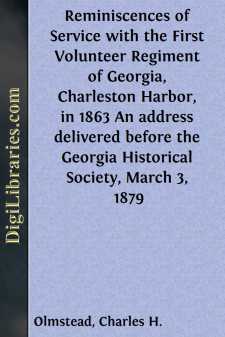Categories
- Antiques & Collectibles 13
- Architecture 36
- Art 48
- Bibles 22
- Biography & Autobiography 816
- Body, Mind & Spirit 145
- Business & Economics 28
- Children's Books 18
- Children's Fiction 14
- Computers 4
- Cooking 94
- Crafts & Hobbies 4
- Drama 346
- Education 58
- Family & Relationships 59
- Fiction 11831
- Foreign Language Study 3
- Games 19
- Gardening 17
- Health & Fitness 34
- History 1378
- House & Home 1
- Humor 147
- Juvenile Fiction 1873
- Juvenile Nonfiction 202
- Language Arts & Disciplines 89
- Law 16
- Literary Collections 686
- Literary Criticism 179
- Mathematics 13
- Medical 41
- Music 40
- Nature 179
- Non-Classifiable 1768
- Performing Arts 7
- Periodicals 1453
- Philosophy 66
- Photography 2
- Poetry 897
- Political Science 203
- Psychology 45
- Reference 154
- Religion 516
- Science 126
- Self-Help 86
- Social Science 82
- Sports & Recreation 34
- Study Aids 3
- Technology & Engineering 59
- Transportation 23
- Travel 463
- True Crime 29
Our website is made possible by displaying online advertisements to our visitors.
Please consider supporting us by disabling your ad blocker.
Reminiscences of Service with the First Volunteer Regiment of Georgia, Charleston Harbor, in 1863 An address delivered before the Georgia Historical Society, March 3, 1879
Description:
Excerpt
Annals of the War.
In preparing the following paper, it has been my desire only to record what its title suggestsâpersonal reminiscences.
Leaving to other and abler pens the task of writing an accurate history of the scenes and events to which reference is now about to be made, I shall confine myself simply to the task of setting down such things as came under my personal observation, or within the scope of my individual knowledge.
I do this the more confidently, remembering the marked interest that invariably attaches to the testimony of an eyewitness, and also bearing in mind (for my own comfort) that this interest will always incline his hearers to leniency in judging literary demerits. It is probable, too, that some of my old comrades will be pleased at this recurrence to an eventful period in their lives, while a younger generation in the ranks may be glad to have placed before them a record, not of the âpomp and circumstance of glorious war,â but of its privations, its hardships, its perils, and, it may be added, its lessons of self-abnegation and of devotion to duty.
Early in the month of July, 1863, while stationed very comfortably at the Isle of Hope, a courier, âspurring in hot haste,â brought orders from Department headquarters that set our camp at once in a turmoil of eager and excited preparation. The 32d Georgia, Col. George P. Harrison, Jr., the 12th and 18th Georgia Battalions, Lieut.-Col. H. D. Capers and Major W. S. Basinger, and a battalion from the First Volunteer Regiment of Georgia, were ordered to proceed with the least possible delay to Savannah, there to take cars for Charleston.
A private note at the same time brought the intelligence that that city, so long threatened, and, indeed, once already assailed by sea, was now to undergo a vigorous and combined attack from both land and naval forces. The day was an eventful one to us without this additional stimulant. In the morning we had received the sad news of the fall of Vicksburg and the consequent opening of the Mississippi river to the Federal fleet, from the mountains to the sea, a disaster that secured to the enemy the grand object of his most strenuous exertions, while it severed the young Confederacy in twain and deprived our armies east of the river of all the aid and comfort in the way of material supplies and gallant recruits, that had been so long and so freely drawn from the west bank. We had just learned, too, of the check received by General Lee at the battle of Gettysburg, and now came the summons to tell that our turn had come for a little squeeze in the folds of the traditional âAnaconda,â that the New York Herald had so graphically depicted as encircling the South.
The men received the orders with enthusiasmâindeed, when was it otherwise with the Southern soldier. Thoroughly conversant, as they all were, with the details of the war, they could not but be depressed by the news of such grave reverses to our arms as the morningâs mail had brought them, and they gladly welcomed the relief that active service promised from the tedium of camp life, and the necessity of thinking upon melancholy subjects....


